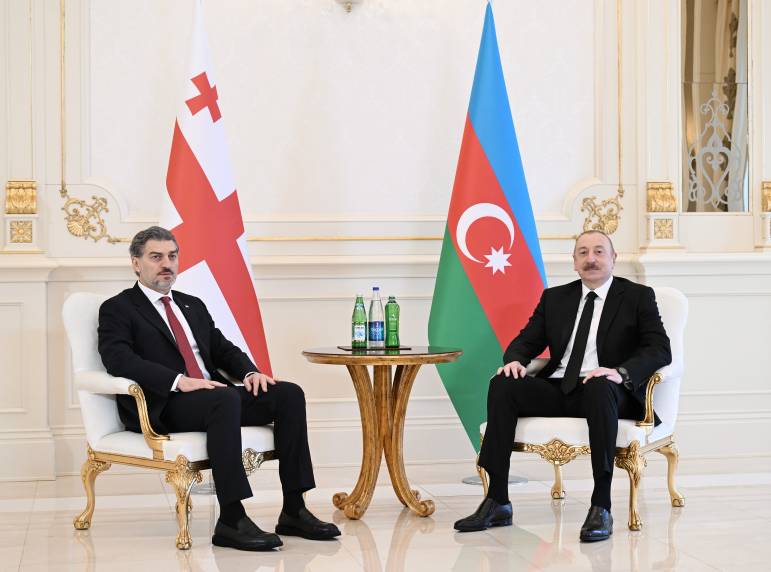20:15
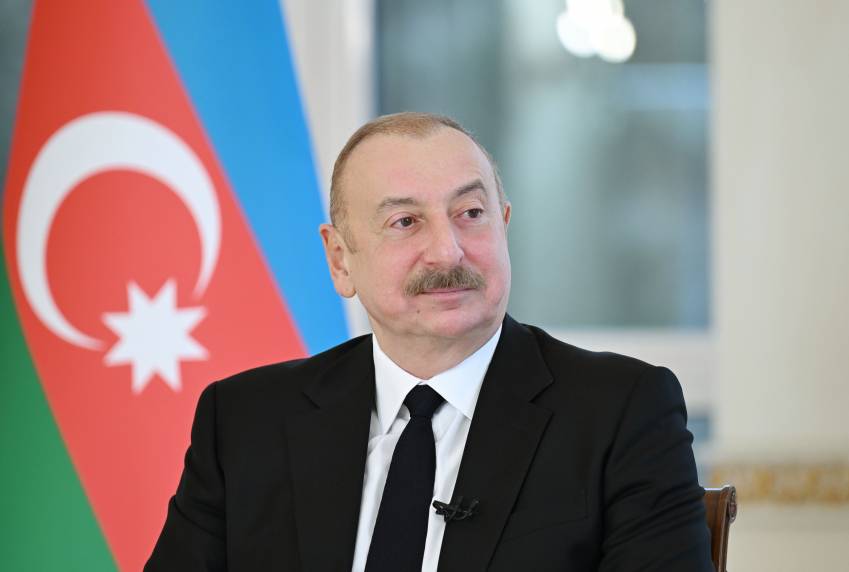
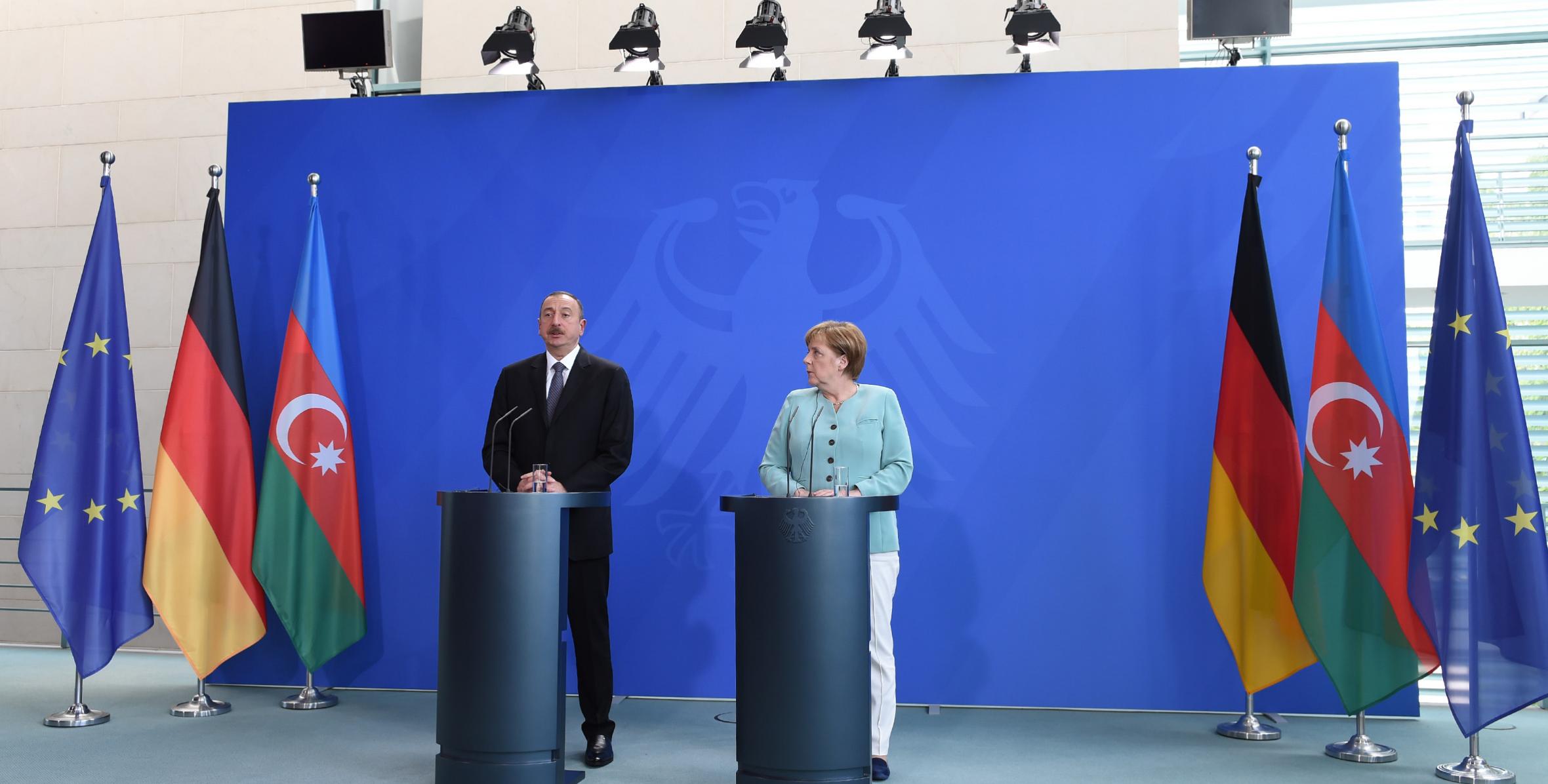
President of the Republic of Azerbaijan Ilham Aliyev and Chancellor of the Federal Republic of Germany Angela Merkel gave a press conference.
Statement of President Ilham Aliyev:
Thank you very much, Madame Chancellor,
First of all I would like to express my gratitude for invitation to visit Germany again. I was here last year, and I am visiting now. So it shows that we have a very active political dialogue.
And today`s meeting with Madame Chancellor once again created a good opportunity to exchange views on important issues of our bilateral agenda and also regional issues. As Madame Chancellor mentioned we covered many areas of mutual interest and importance. I’m sure that successful development of German-Azerbaijani relations will serve the cause of peace, stability in our region. Of course, Nagorno-Karabakh settlement, the conflict between Armenia and Azerbaijan was one of the most important parts of our discussions. We need soonest resolution of this conflict based on international law norms and implementation of United Nations Security Council resolutions, which were adopted, four of them more than 20 years ago, and which demand immediate and unconditional withdrawal of Armenian troops from the territory of Azerbaijan. Unfortunately, these resolutions are not implemented and there are no mechanisms of implementation. Unfortunately, sanctions have not been imposed on Armenia for brutal violation of international law, for policy of ethnic cleansing, for occupation of almost 20 percent of the territories of a sovereign state. We want peaceful, soonest resolution and the resolution that will be in line with United Nations Charter, Helsinki Final Act and relevant resolutions of international organizations. The recent development in the region on the line of contact shows that the ceasefire is not stable, it is fragile and status-quo is not acceptable. In the beginning of April Armenia launched another military provocation against Azerbaijan. We had to defend ourselves, to defend our civilians. By the way, 6 civilians were killed as a result of Armenian aggression, 100 houses in Azerbaijan were totally demolished, 500 houses damaged. Status-quo must be changed. Minsk Group co-chairs, their presidents repeatedly commented on that. Germany, as a chair of OSCE, made a very clear statement that status-quo is not acceptable. The change of the status-quo means beginning of de-occupation of the territory of Azerbaijan. Azerbaijan is committed to peaceful settlement. In Vienna this May a meeting was organized by the ministers of foreign affairs of the three co-chair countries and we agreed that we will work on different tracks. First, we will start substantive negotiations and we will strengthen the ceasefire regime and create additional opportunities to strengthen the ceasefire regime, but this process should definitely go in parallel.
We also discussed issues related to regional security, regional cooperation and, of course, economic cooperation between us. This morning, I attended the German-Azerbaijani business forum with presidents of the leading German companies and I saw there is a big mutual interest in doing business together. As it was informed by German representatives, trade with Azerbaijan makes 80 percent of Germany`s trade with the Southern Caucasus. I am sure that these figures will only grow due to the policy of reforms which we implement, and there will be greater opportunities for our companies to do business together.
Energy security definitely was today broadly discussed. Azerbaijan plays its important role in implementing large-scale energy projects of the Southern Gas Corridor, which covers now seven countries, three of them members of EU. And European Union strongly supports our initiatives. The Southern Gas Corridor is a project of energy diversification for us as producers and for consumers because they will have access to a new, alternative source of gas from Azerbaijan, which will be delivered by the brand new transportation infrastructure. Energy security today cannot be separated from national security of countries. The countries which depend on energy supply, of course, need to have diversified routes and sources so Azerbaijan is a new country in this respect, and as a friend we will do everything in order to implement the project on time. By the year of 2020 the Southern Gas Corridor project should be completed. This is a project worth 45 billion dollars.
Other areas of cooperation are also of great importance. I also informed Madame Chancellor about transportation projects which Azerbaijan implements to create the reliable connection between Asia and Europe through Azerbaijan using our existing infrastructure. So the shortest route from Asia to Europe will be the route through Azerbaijan, which will be in operation by the end of the year.
Also we discussed issues related to political development in Azerbaijan. Azerbaijan is strongly committed to democracy, protection of human rights. Many steps have been taken recently in order to address these issues and today we have all the fundamental freedoms in Azerbaijan - freedom of assembly, freedom of media, freedom of expression. We have free internet, where 75 % of our citizens are users of internet. We have freedom of religion. This year in Azerbaijan is declared the year of multiculturalism and Azerbaijan is a good example where people representing different religions live in peace, harmony and dignity.
Once again, I’d like to express gratitude for hospitality of Madame Chancellor, for opportunity to discuss these issues with you, and I hope that our bilateral cooperation will successfully continue in the future. Thank you.
Then journalists` questions were answered.
Andreas Inker from Reuters: My question is addressed to you Mr. President. Can you give us an assessment about the role that Russia plays? Russia supplies weapons to both Armenia and Azerbaijan in the Nagorno-Karabakh conflict. Is that an honest broker or is it a competitive rather as regards to oil and gas supplies? And Madame Chancellor, did you also address Turkey on its role as a regional power? And what would you say as the Turkish President accuses Germany of dealing with the genocide of Armenia, but not sufficiently with Holocaust and the Herero massacres?
President Ilham Aliyev: Russia is our neighbor and a friendly country. We have developed very constructive and friendly relations. We cooperate in many areas with Russia - in economic area, in area related to security, area related to transportation. We have good trade relations and we consider Russia as our strategic partner. And Russia’s attitude towards Azerbaijan is exactly the same. The fact that Russia is selling weapons to Armenia does not create any allergy in Azerbaijan. We understand that Russia is a big producer of arms and can sell it to anybody, any country it would consider right. Unfortunately Armenia is subject to allergy when Russia sells weapons to Azerbaijan. Unlike Armenia, Azerbaijan pays the full price for these weapons and Russia is not the only country where we purchase weapons. It is not a secret that we buy weapons from Turkey, from Israel, from Belarus, from Iran and from many other countries because we are modernizing our armed forces. And any country, especially one living under occupation and especially one living in a difficult geopolitical configuration, needs to be duly protected. Russia also is one of the co-chairs of OSCE Minsk Group, which deals with Nagorno-Karabakh settlement, and we consider the role of Russia as very positive, and we hope that Russia along with the United States and France will use all their potential in order to convince Armenia that its high time to liberate the territories which do not belong to them.
Chancellor Angela Merkel: Well, we also talked about Turkey. Obviously, Turkey after all, due to economic ties in the southern territory, is very closely linked to Azerbaijan. But it is also linked to Azerbaijan in general. And therefore we also talked about a settlement of the Nagorno-Karabakh conflict and that this might indeed be conducive to improving relations between Armenia and Turkey. You know that there have were a lot of attempts between 2005 until 2009 to improve relations between Azerbaijan and Armenia also because of the situation that Azerbaijan felt that it was not sufficiently supported. The relations between Turkey and Armenia would also be less tense if this conflict could be resolved. But as far as one country`s past is concerned let me point to the fact that the resolution of the German Bundestag quite expressively includes the singularity of the Holocaust. It is quite clearly pointed out that Germany has not only dealt with its own history of national socialism and of the Holocaust, it will continue to do so in each and every generation. We are bound to do so. We believe that we also must give a contribution to help others, for example, Turkey and Armenia to come to groups with their history by setting up, for example, a common panel of historians. I will obviously address these matters in my talks with the Armenian and the Turkish side. Since we talk about Turkey, let me use this opportunity here today to say that we are absolutely horrified of the news we received this morning. It is a very sad fact that again 11 people fell victim to the hatred and to delusionous attitude of terrorists. Nothing, absolutely nothing justifies such acts of terrorism, and there can be no excuse for such cruelty. My thoughts, my sympathy and my condolences go to the families, to those who have been injured, and to those who’ve lost their dear ones. Let me add yet again, wherever we can fight terrorism Germany will stand side by side with Turkey.
Azer Khalilov (CBC TV channel). My question is addressed to Madame Chancellor of Germany. As a result of the aggression of Armenia against Azerbaijan, that has continued for over twenty years, 20 % of the Azerbaijani territories have been occupied and for about one million of Azerbaijanis have become refugees and internally displaced persons. United Nations Security Council adopted four resolutions demanding unconditional withdrawal of the Armenian forces from Azerbaijani territories. But Armenia doesn’t implement them. What do you think can be the mechanisms to force Armenia to implement these mentioned resolutions adopted by United Nations Security Council and free occupied Azerbaijani territories? And by the way why international sanctions are not imposed on Armenia?
Chancellor Angela Merkel: Today we addressed this issue in a sense that we say we hope for a diplomatic and a peaceful settlement of this conflict. During its chairmanship of the OSCE Germany will try to bring about a solution in the sense that we will try to exert influence and pressure. And we want an overall package to be implemented – on the one hand a ceasefire that needs to be effective, and on the other hand, on the basis of the Madrid principles a solution of the conflict. First steps have been proposed and I can reaffirm Mr President that all co-chairs - the United States, France and Russia – will work on them so that this process is implemented and makes progress.
Christina Dunnz from the German Press Agency: Mr. President, you accused Armenia of massive aggression against Azerbaijan, when their media and President did the reverse. He said it is your country that provokes all the time and that now Armenia wants to talk about possible independence of such a territory. So what chances do you think are there still for a peaceful solution? What do you think your country can still do?
And Madame Chancellor, after the Armenia resolution in the German Bundestag now the Turkish president wants to see blood tests of the actual origin of Turkish members of the parliament. How dangerous do you think this kind of attitude is?
President Ilham Aliyev: I am not surprised. The Armenian President usually uses every opportunity to accuse Azerbaijan. Our position is very clear. It’s enough to look at the map of the region to see who is the aggressor and who is a victim of the aggression. Armenia, by force, in the beginning of 1990s, occupied the territory which belongs to Azerbaijan. Nagorno-Karabakh is historic part of Azerbaijan, whose population was 30 percent of Azerbaijani origin. All of them were expelled. They committed a war crime, a genocide in Khojaly, which now 10 countries recognize as a genocide. In one night, they killed 613 people. Among them 106 women, 63 children and one thousands were missing until now and all that is documented. It is not something which happened many decades ago and there is no enough evidence. It just happened in front of the eyes of the international community. Occupying Nagorno-Karabakh was not enough for them as then they occupied seven other districts of Azerbaijan, expelled all the population, destroyed our historical monuments, destroyed our mosques, our graves. For more than twenty years, they sit on these lands illegally, and they ignore the appeals of international mediators to resolve it peacefully. What means the resolution of the conflict? It’s very simple. It is de-occupation of the occupied territories of Azerbaijan, peaceful settlement of the conflict. We have many times announced that we are ready to provide high autonomy, highest possible autonomy for Nagorno-Karabakh and within the framework of integrated Azerbaijani state. In order to prolong these negotiations, endless negotiations, from time to time they organize this kind of provocations, one of them was in the beginning of April, with only goal in order to disrupt negotiation process. When the pressure of international mediators is growing on them, they use it as a pre-text, but this time I think they had a bad calculation of the consequences as a result of the counter-attack of Azerbaijani army we managed to restore our control over part of the occupied territories. I think this is a lesson which the Armenian government should not forget. They need to comply with the international law. Illegal occupation of the territory of other countries is absolutely unacceptable. They should listen to the presidents of the United States, Russia and France that status-quo is not acceptable and start de-occupation. As soon as it starts, we will open all the communications. We will restore transportation infrastructure and we will eliminate any single possibility for military scenario. Once again, I’d like to say, as I said before, we are committed to a peaceful settlement. Otherwise, in the beginning of April, the clash wouldn’t have stopped. We stopped the clash, because we don’t want war. But we need peace. We need settlement, we need our territories back.
Chancellor Angela Merkel: Well, when the resolution of the German Bundestag was adopted it was well-known that there are different viewpoints between the majority of the German Bundestag and the Turkish side. I personally, therefore, have tried to work and will continue to try to work for direct talks between Armenia and Turkey. The members of the German Bundestag are freely elected members of parliament, without any exception. Therefore, the accusations or rather the statements at the Turkish side made me simply lost to understand them.
Ilham Ahmadov (Azerbaijan television). Question is to Madame Chancellor. For many years, Azerbaijan has been a reliable supplier of oil to European markets. Now Azerbaijan is implementing Southern Gas Corridor project to help Europe to diversify its sources of gas supply. Do you think that there is enough appreciation in Europe about the role of Azerbaijan in the energy security of Europe? Thank you very much.
Chancellor Angela Merkel: Yes, I have the impression that its indeed sufficiently appreciated because after all that is something the we have talked about for many-many years and I am very pleased to note that realization of this Southern Gas Corridor is now not only a project, but will be implemented. The President quite rightly said how many member states of the European Union are direct beneficiaries of this. It will strengthen also the links between the EU and Azerbaijan. It will help to diversify energy supplies for the European Union which quite clearly is an objective of the European energy policy. We are very gratified to note the progress that has been made. And indeed, within the time limits we’re not only talking about plans, but about realization of the project.
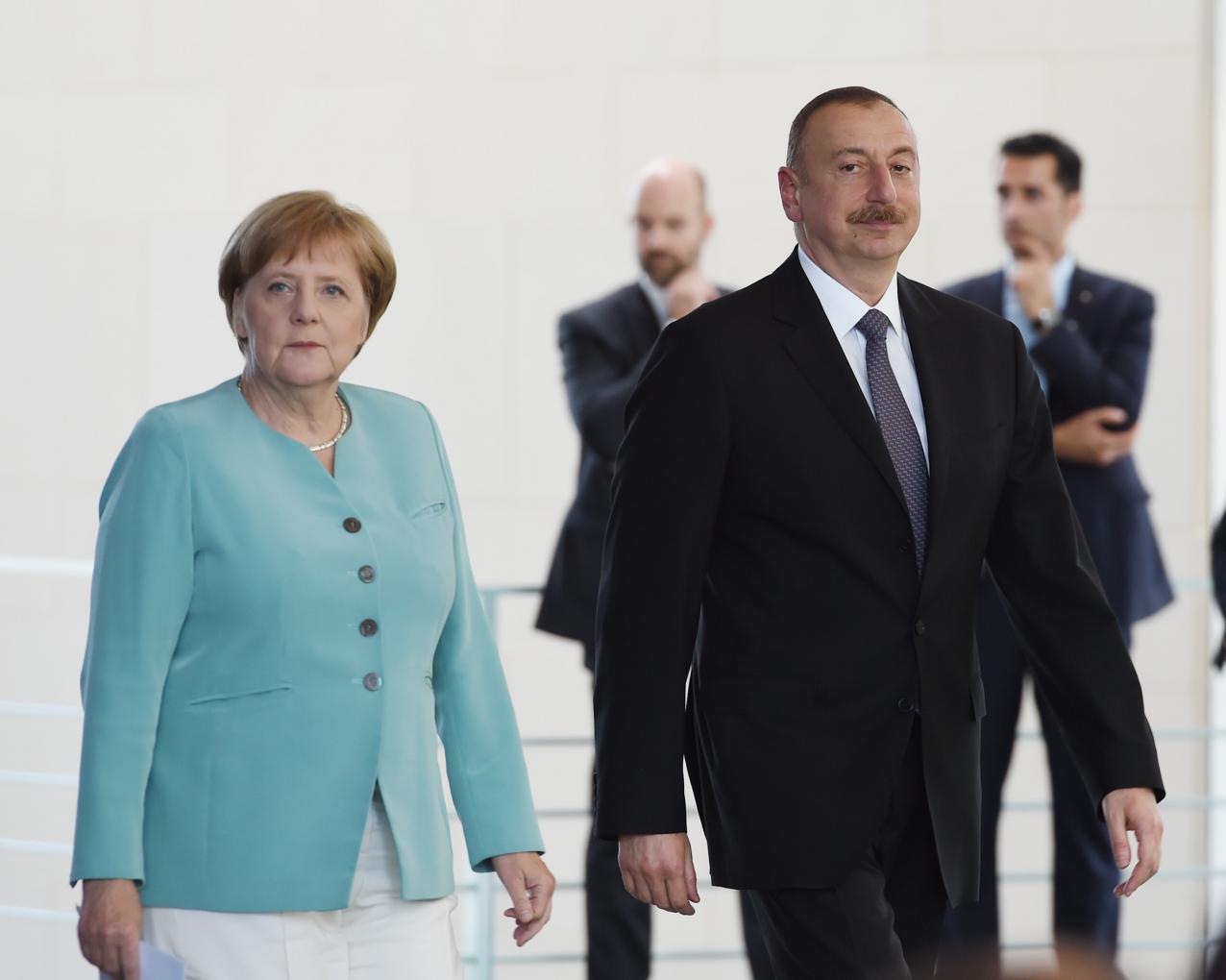
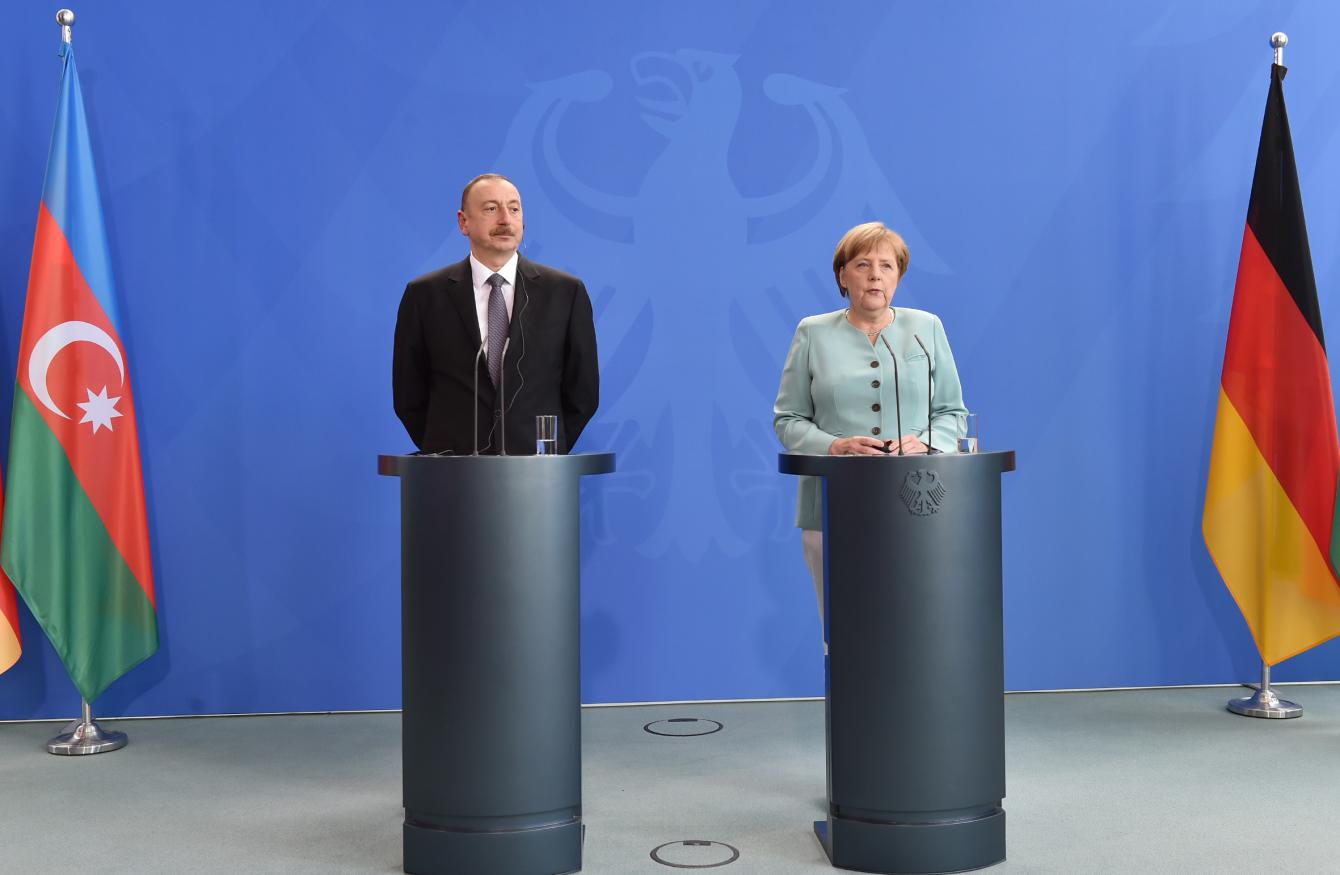
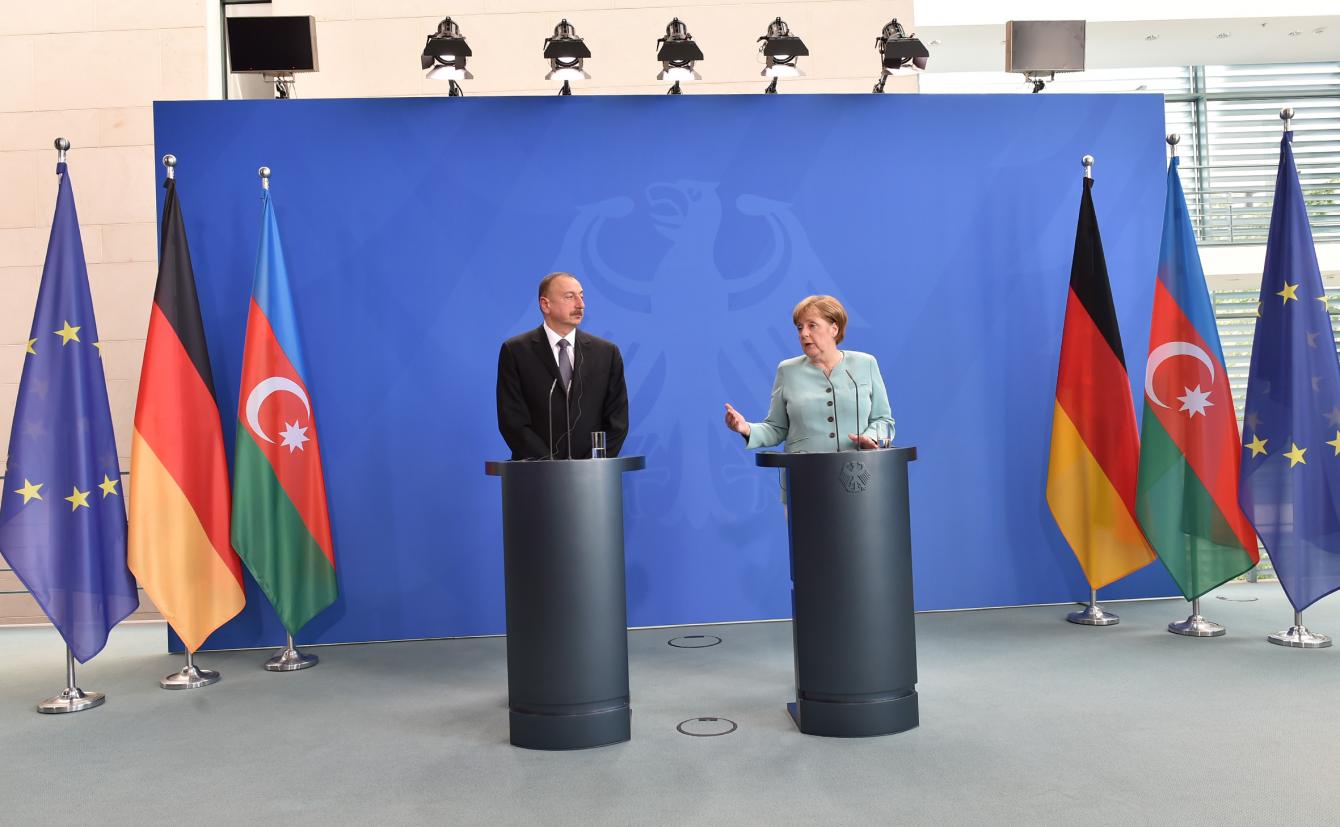
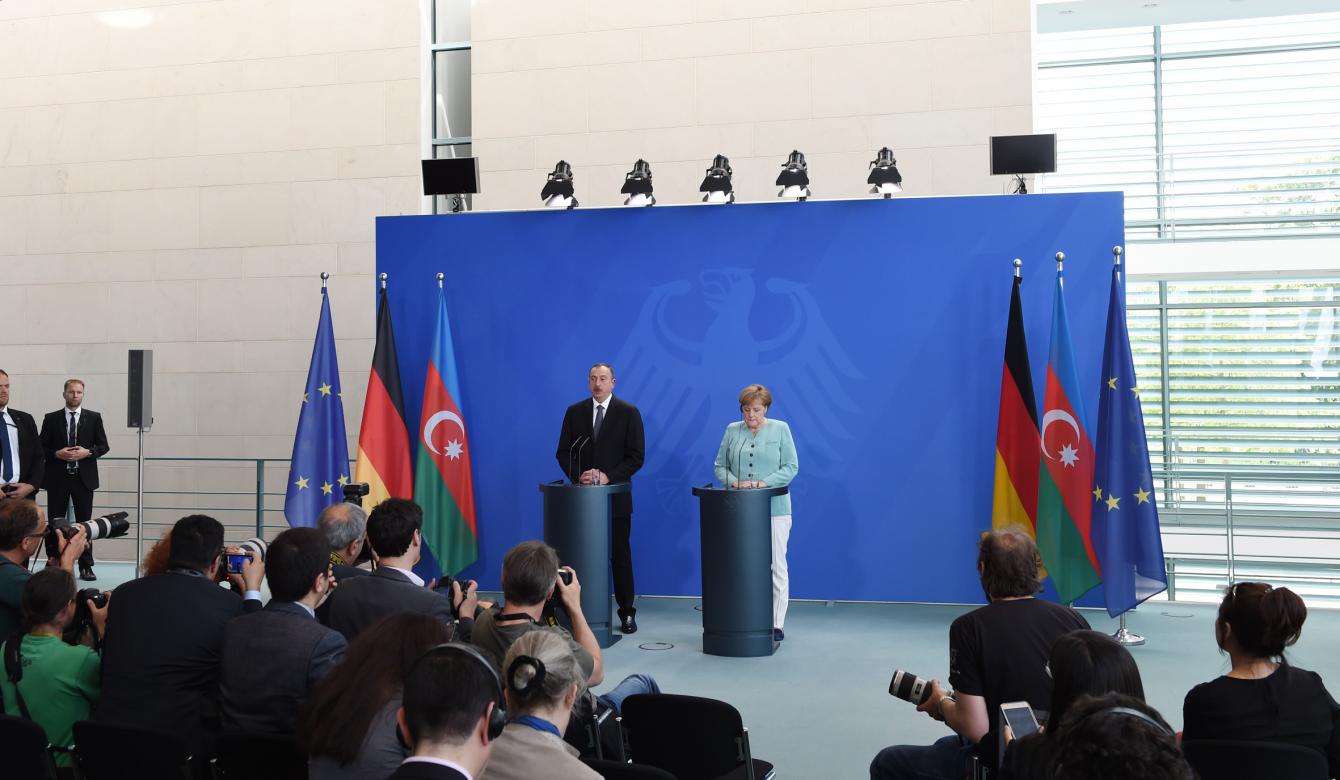
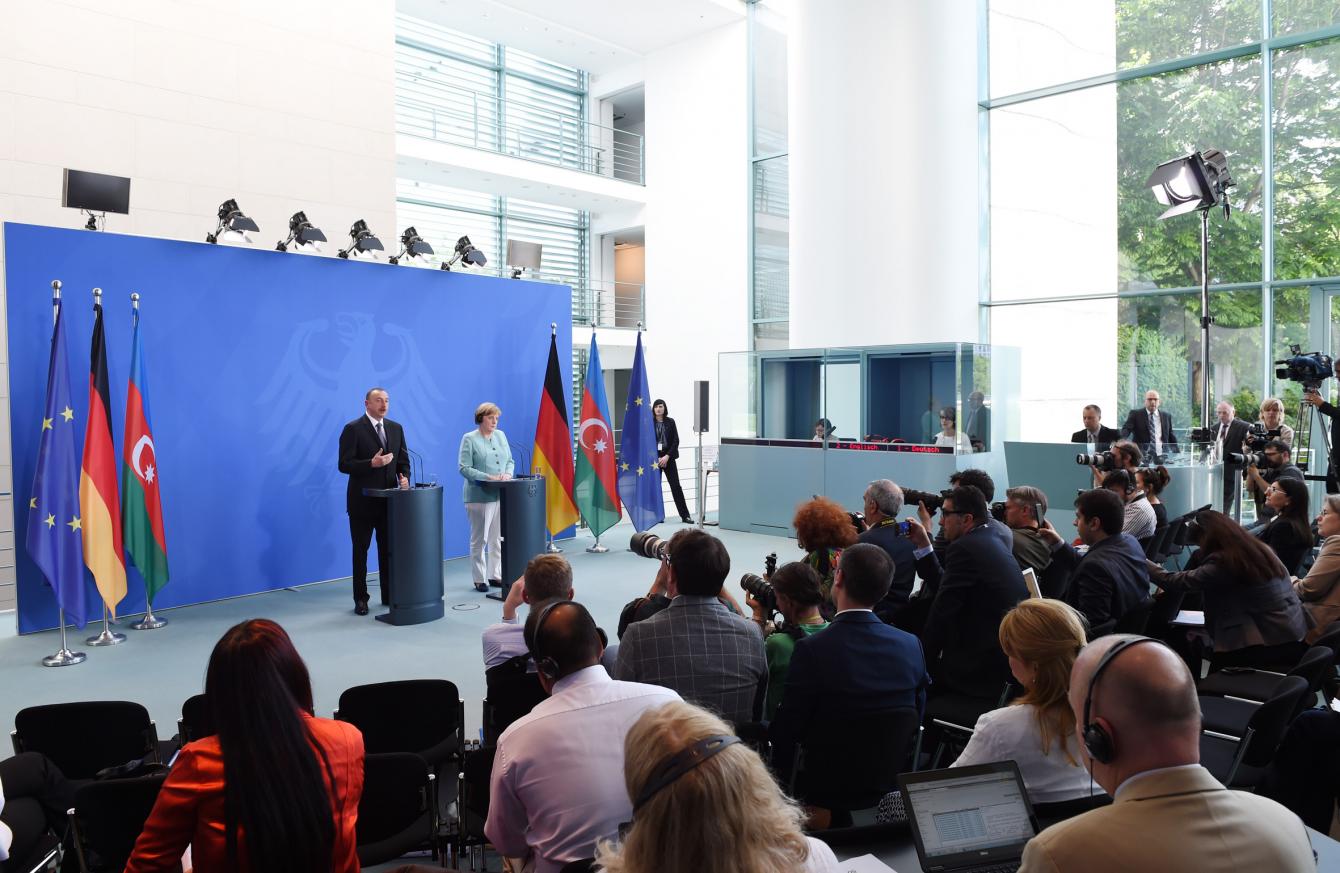
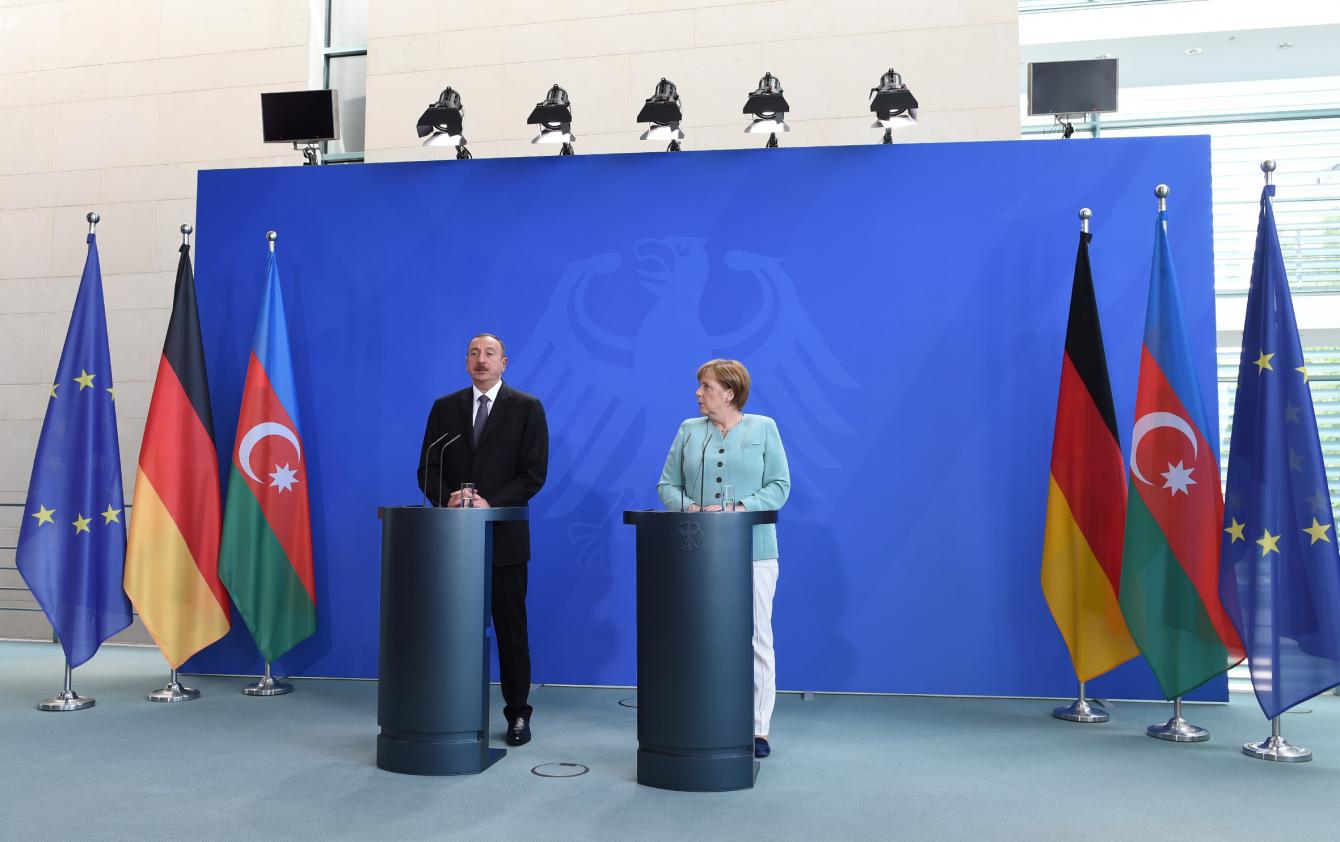
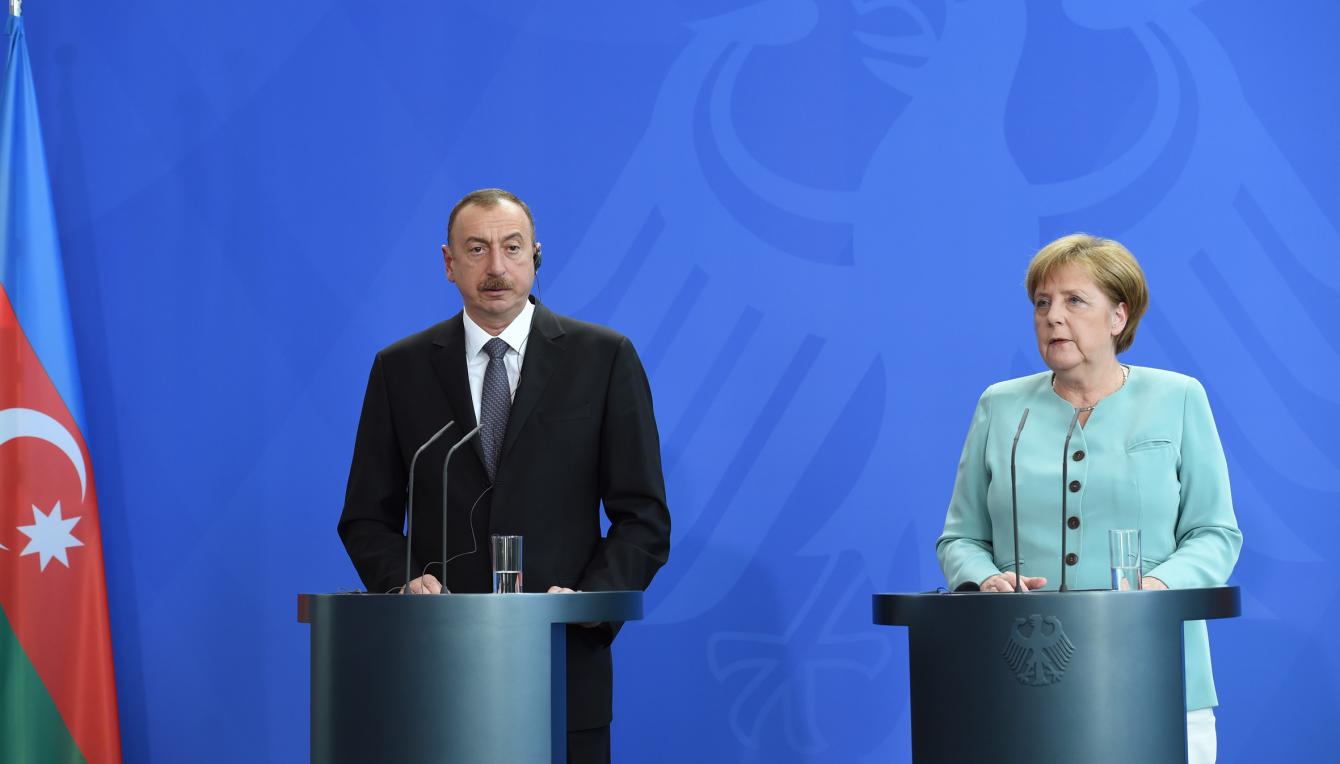
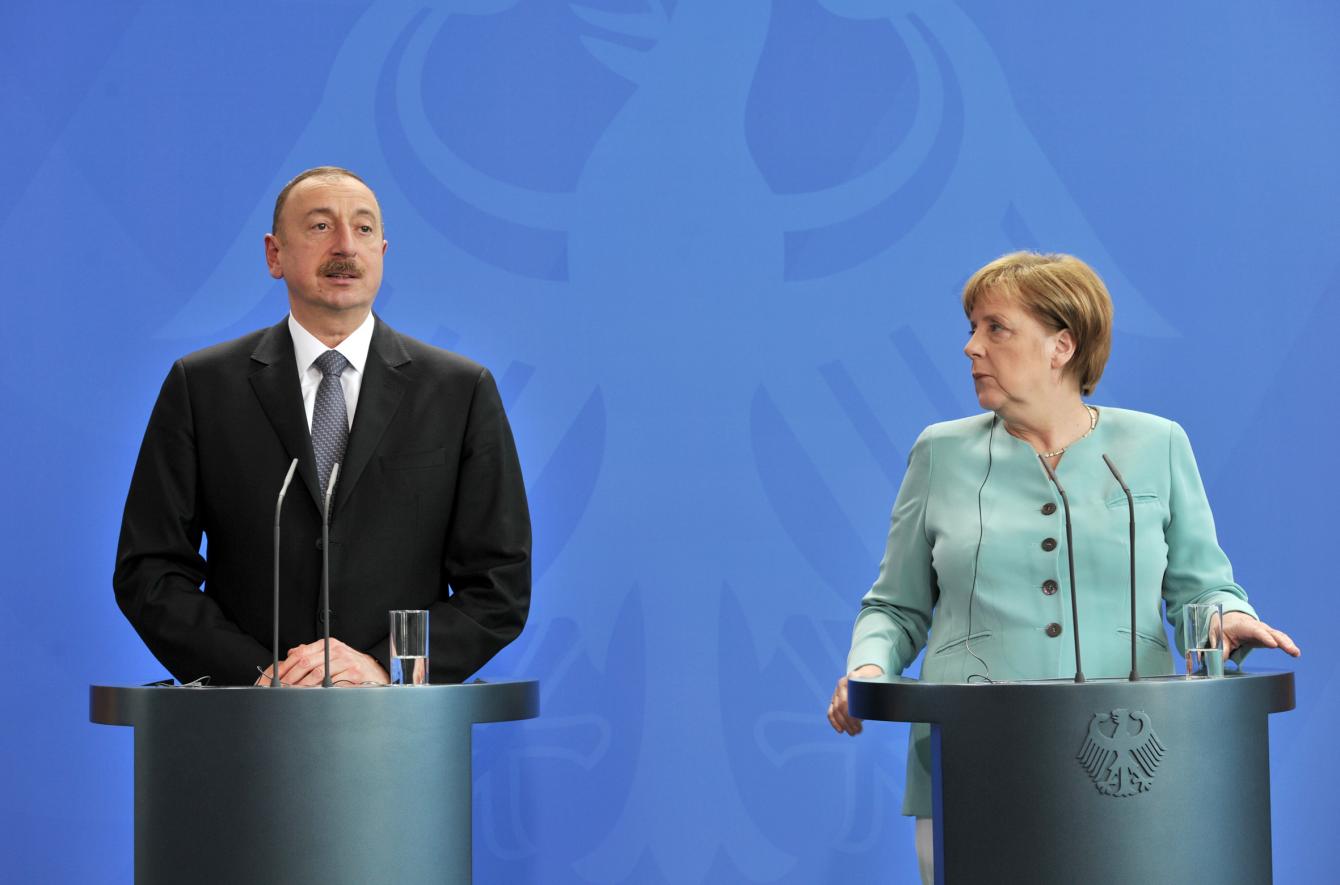
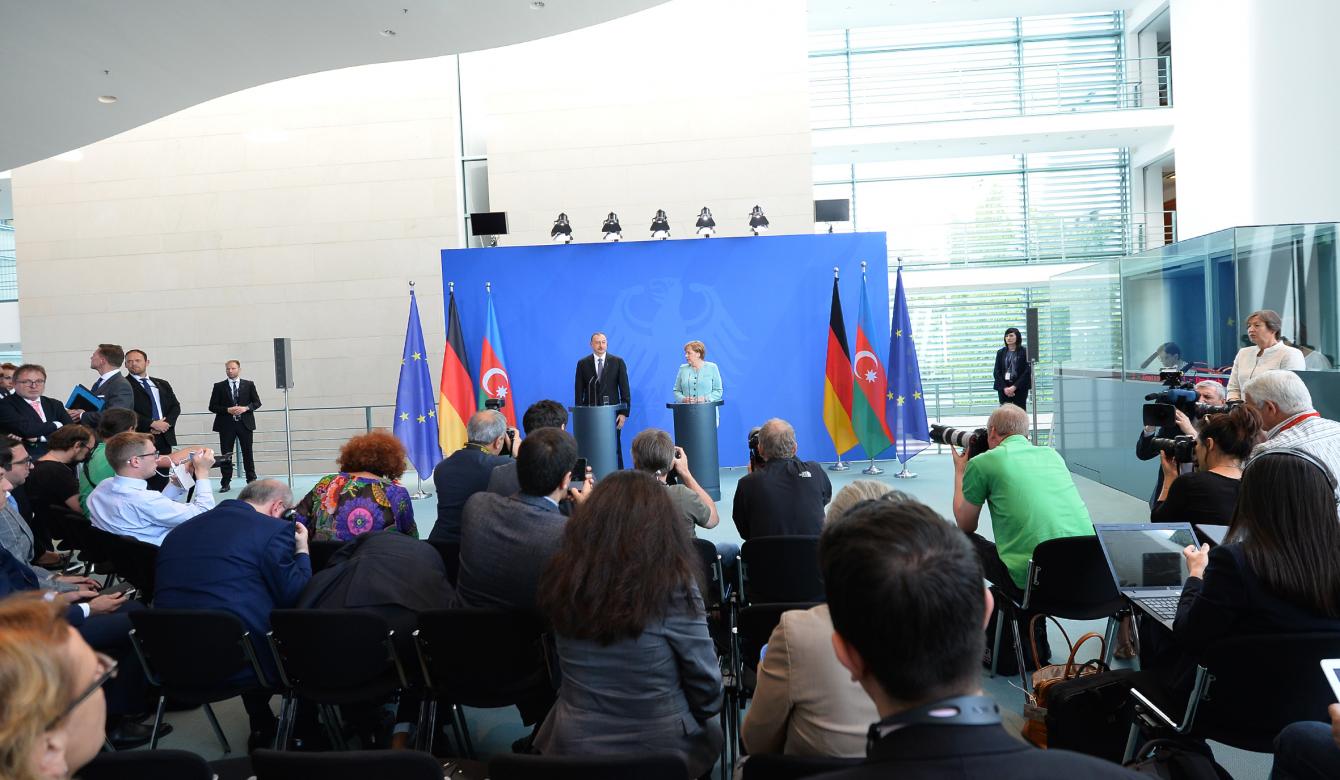
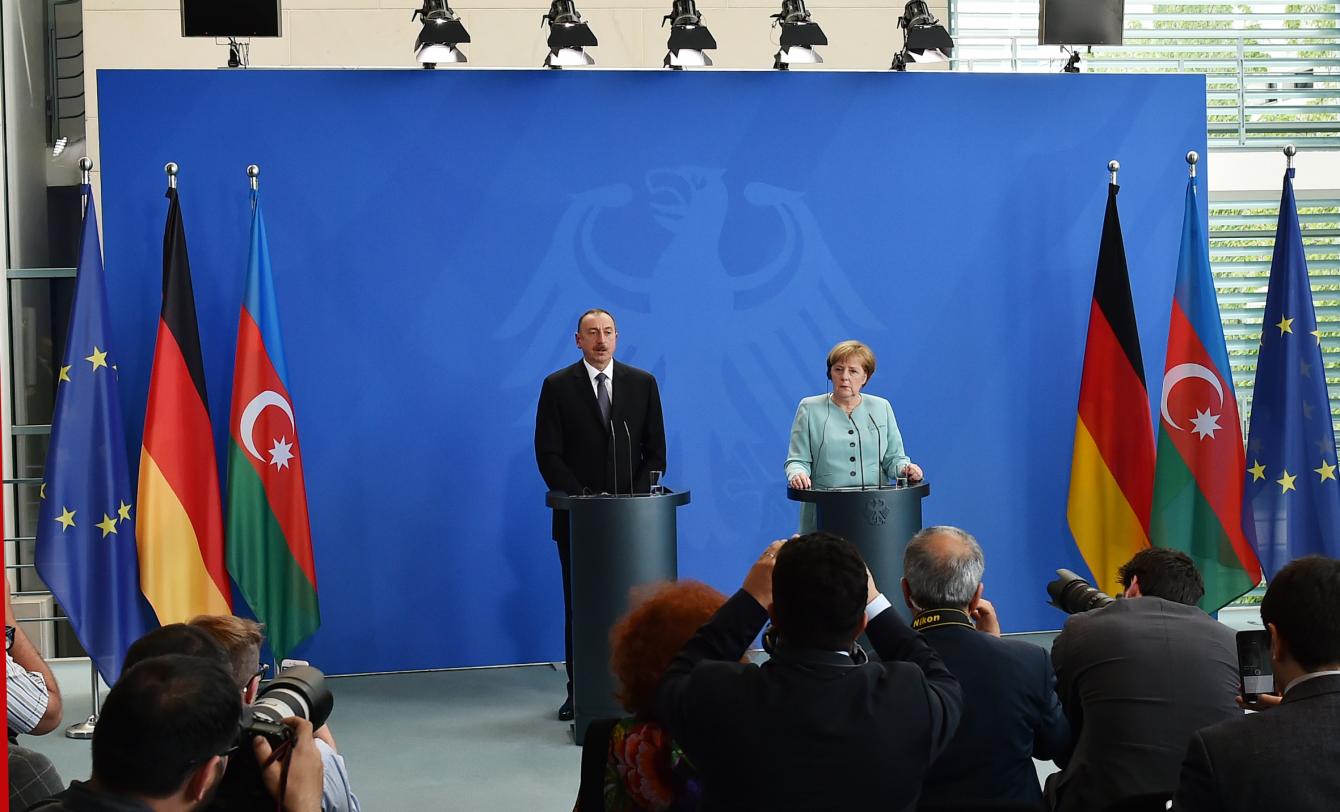
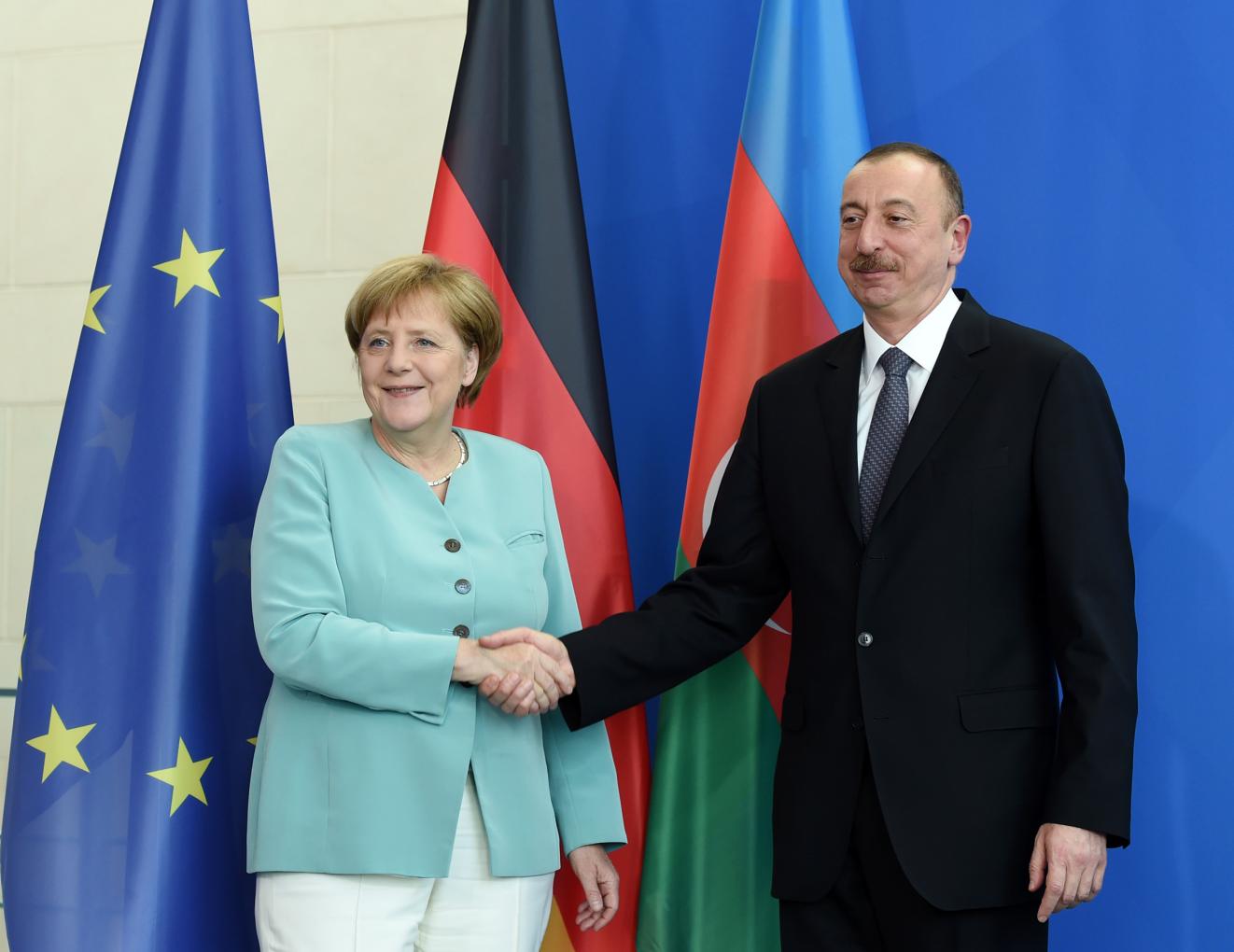
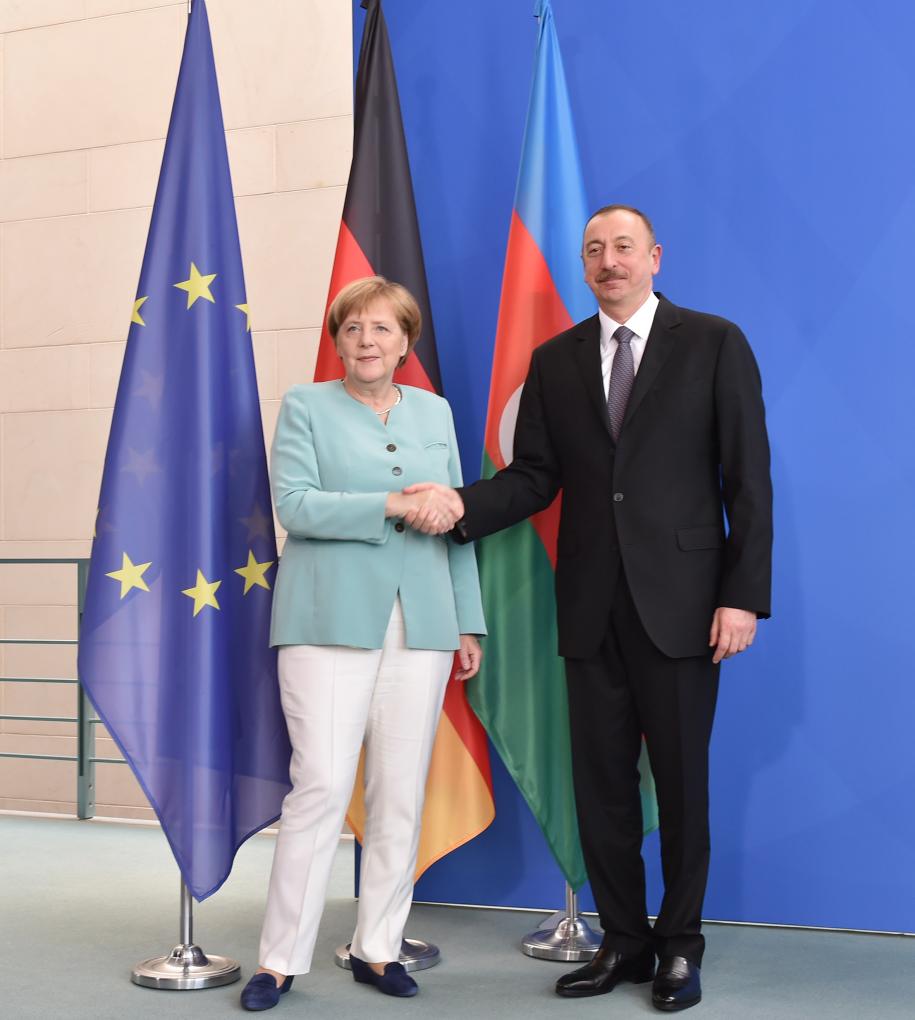
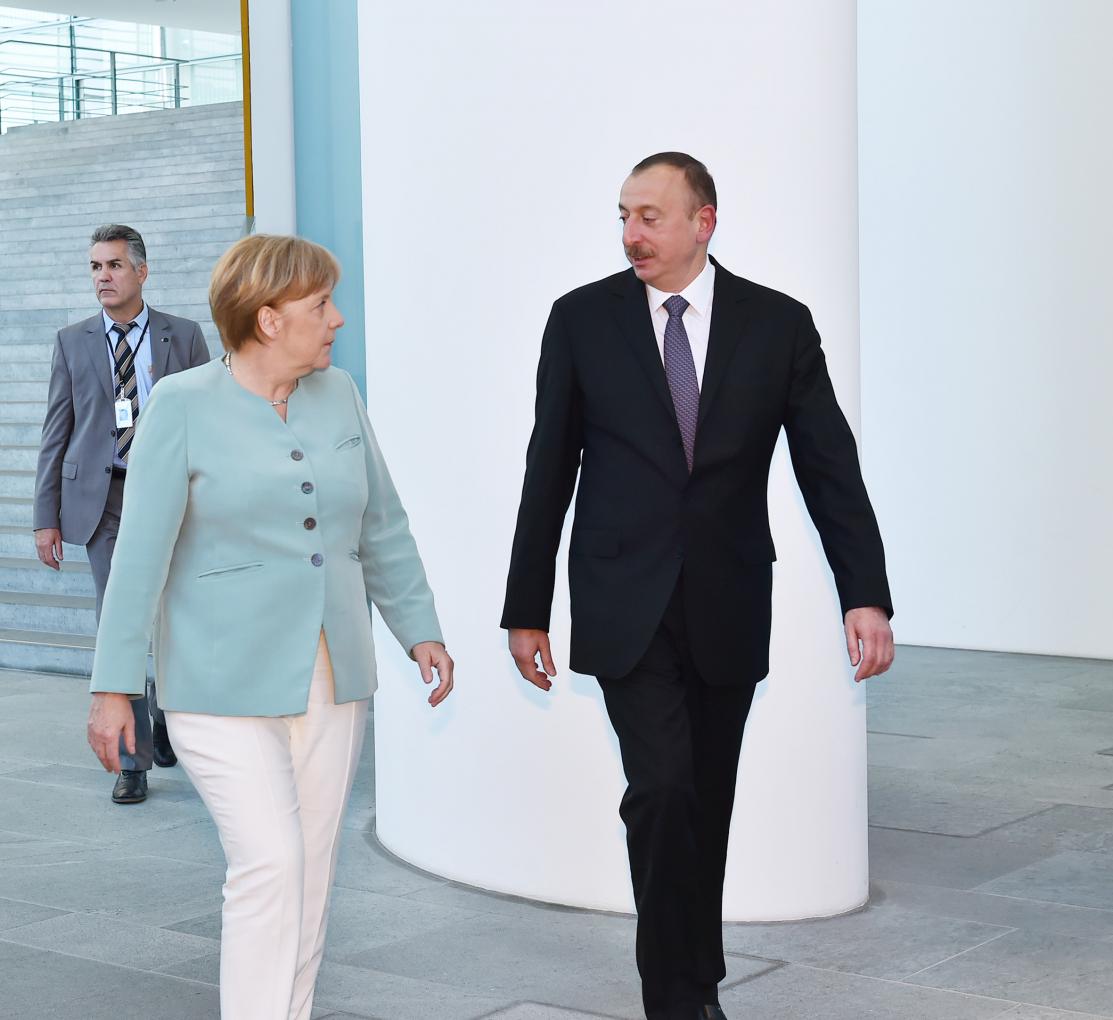
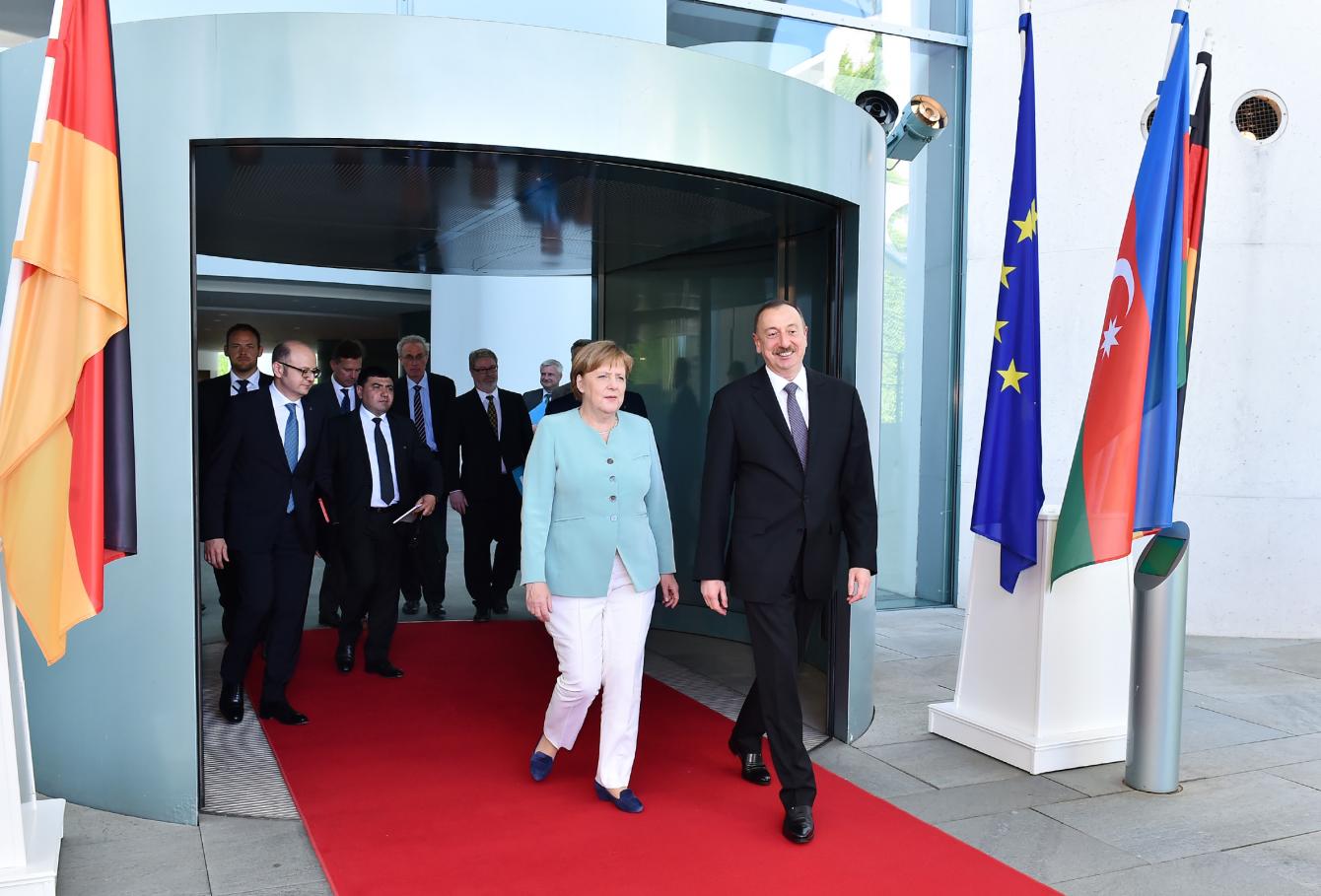
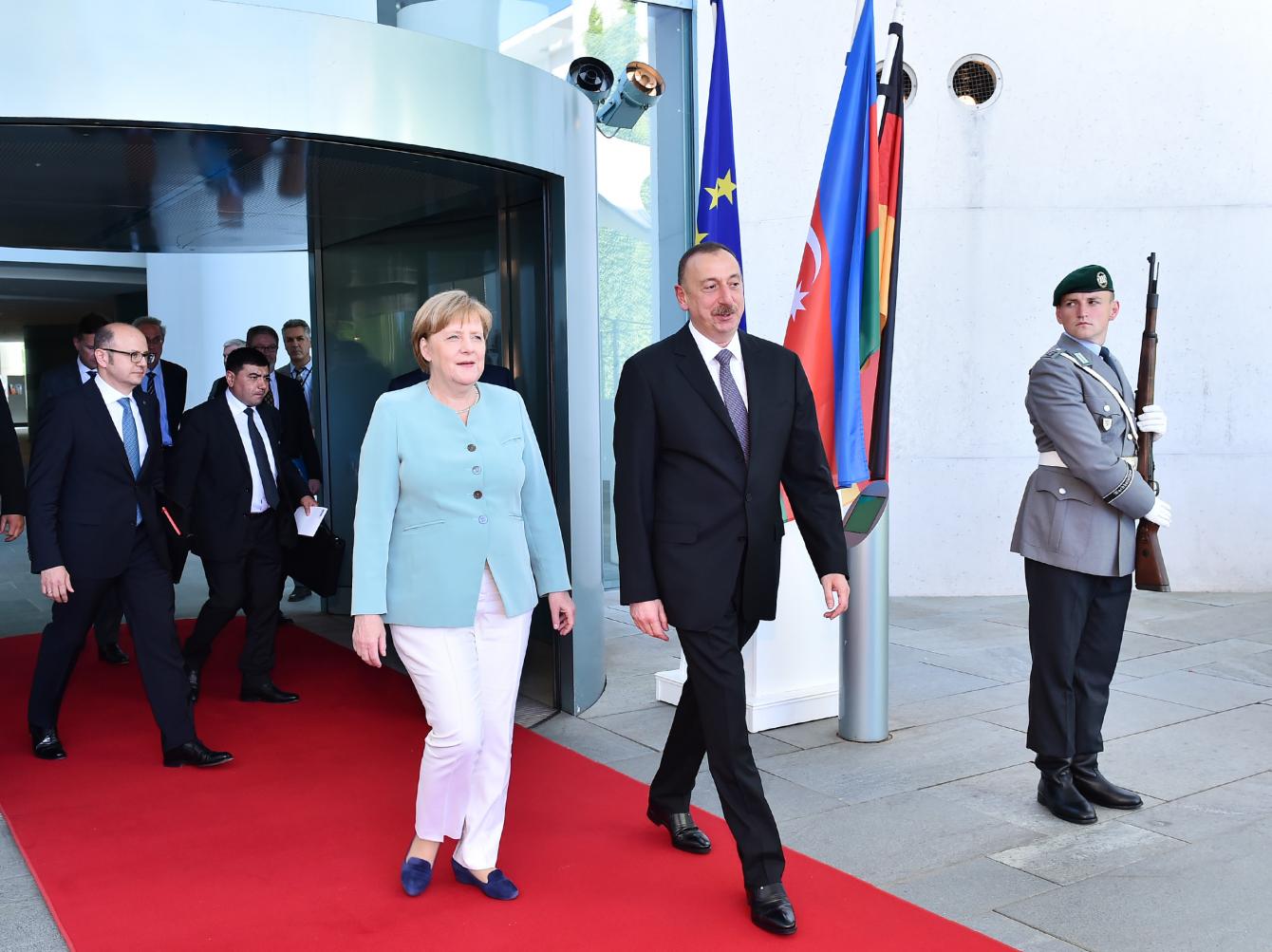

Your Eminence,
We were deeply saddened to hear of the passing of His Holiness Pope Francis, Head of the Holy See and one of the most prominent religious figures of our time.
In the person of Pope Francis, the international community and the Catholic world have lost...
21 April 2025, 14:13I sincerely congratulate you and the entire Christian community of Azerbaijan on the sacred holiday of Easter, and I extend my wishes of happiness and well-being to all of you.
In Azerbaijan, which has rich traditions of tolerance, there has never been a case of...
18 April 2025, 16:25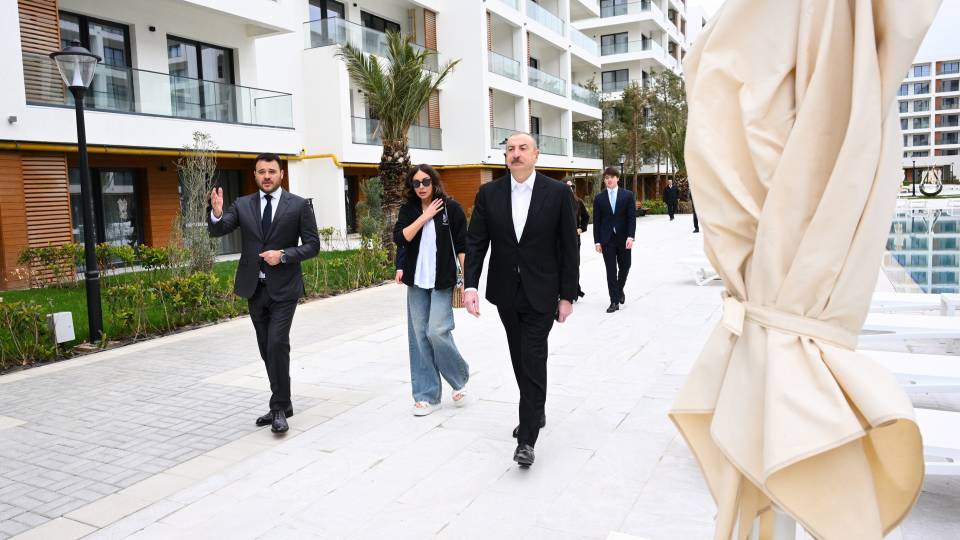
Dear Mr. Çavuşoğlu,
I was deeply saddened to learn of the passing of your father, Osman Çavuşoğlu — a profound loss for your family.
In this time of sorrow, I share in your grief and extend my deepest condolences to you and all the members of your family,...
18 April 2025, 12:37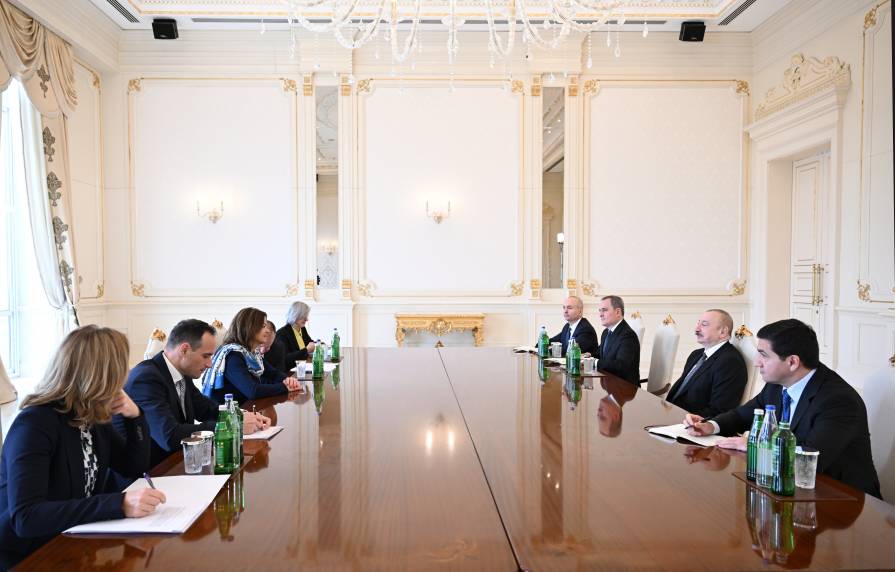
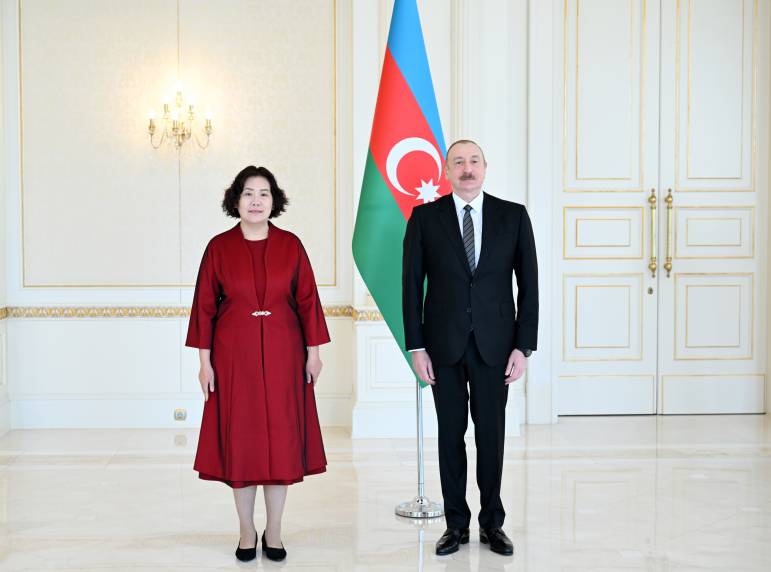
We were deeply saddened to learn of the passing of Richard Armitage – an eminent statesman, distinguished diplomat, dedicated public servant, and a great friend of Azerbaijan.
His years-long, productive service in international politics and diplomacy, coupled with...
16 April 2025, 18:06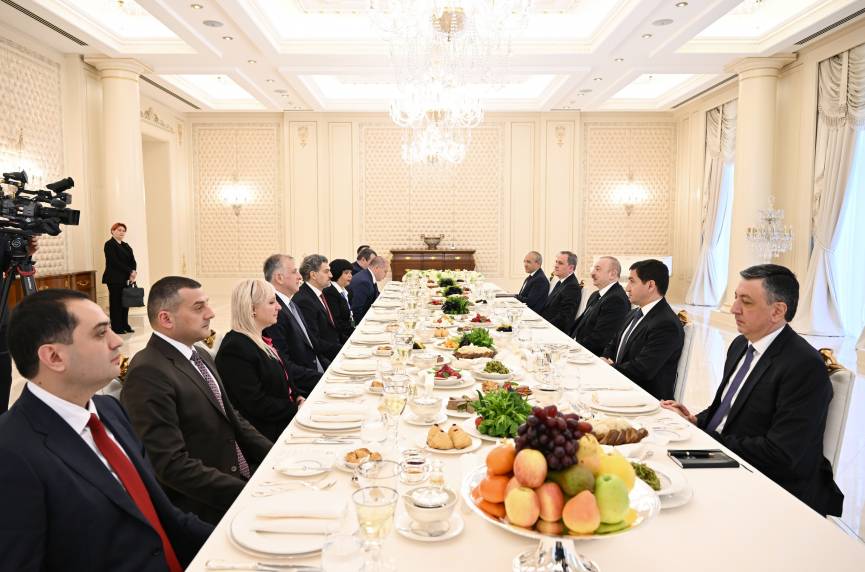
Statement by President Ilham Aliyev
- Dear Mr. President,
Dear guests,
Ladies and gentlemen,
Dear Mr. President, I would like to once again sincerely welcome you to Azerbaijan! I cordially congratulate you again on your election as a President and wish you ...
16 April 2025, 12:12